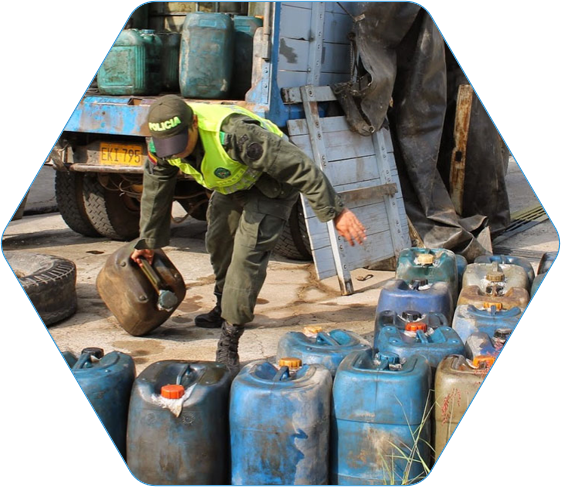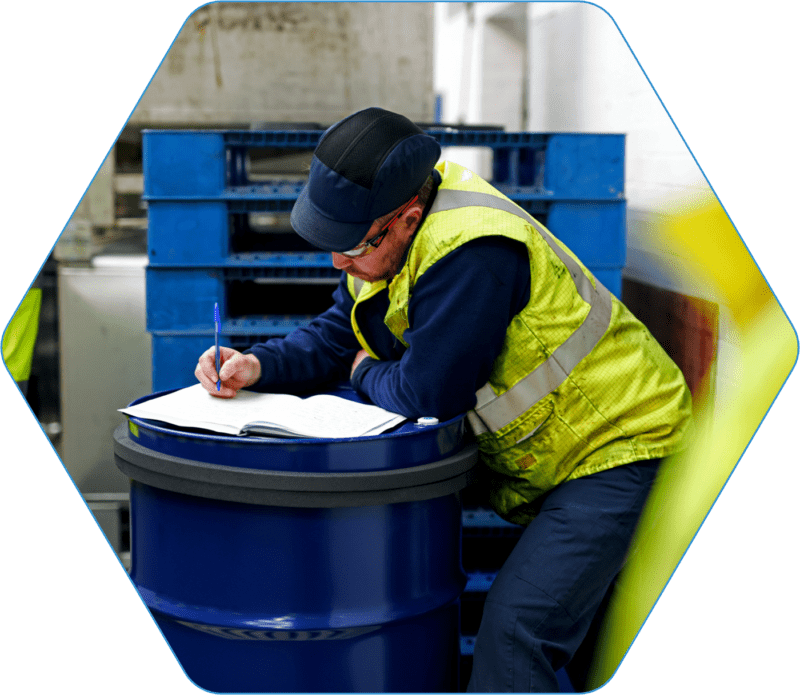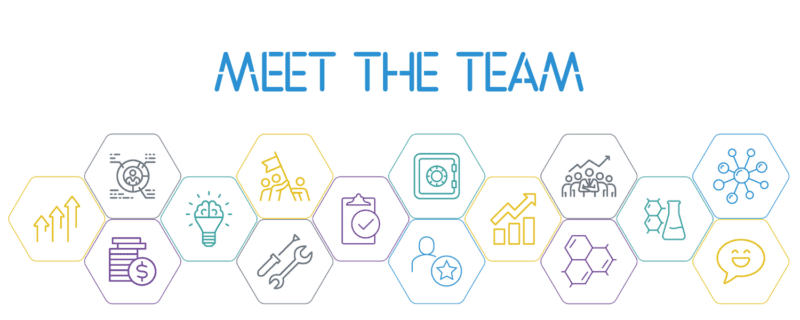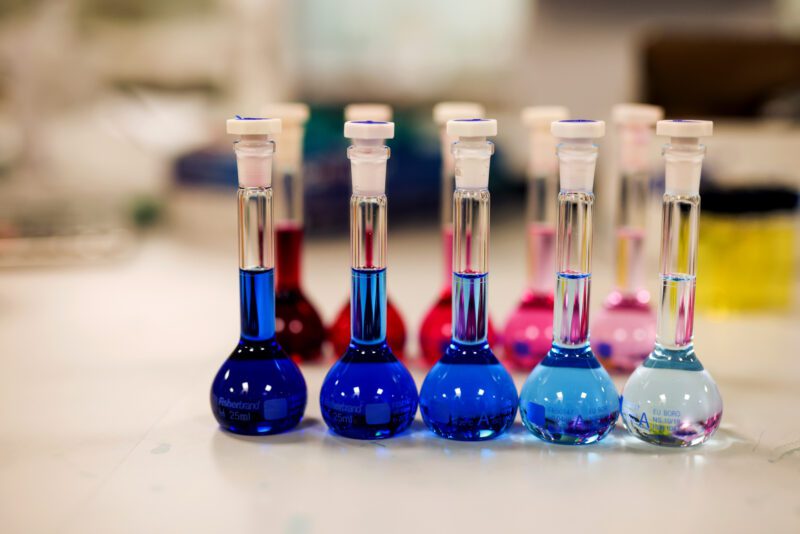
From Cartels to Corruption: Understanding Hydrocarbons Crime on World Anti-Counterfeiting Day
ShareWorld Anti-Counterfeiting Day, observed annually in June, shines a spotlight on the global issue of counterfeit goods and the broader spectrum of illicit activities that undermine economies and jeopardize public safety.
In our everyday lives, we often see counterfeit products that imitate well-known brands or fake money that deceives unsuspecting individuals. We’ve become familiar with the concept of counterfeit goods and the negative impact they can have on our wallets and the economy. However, there’s another more hidden form of counterfeiting that most people are unaware of, which carries similar serious consequences – counterfeit fuels. Just as counterfeit clothes may fall apart after a few wears, counterfeit fuel can wreck engines, cause more damage to the environment, and contribute to societal problems like organised crime and even terrorism.
In this article, we will explore the various modes of fraud that are prevalent in fuel markets and shed light on how these fraudsters cause damage to the economy and the environment. We will examine the connections between fuel fraud and organized crime, and furthermore, we will discuss the implications of fuel fraud for fuel brands and governments, highlighting potential solutions to tackle the problem.
So, on World Counterfeiting Day, let’s delve into the world of fuel fraud, uncover its far-reaching consequences, and explore the measures that fuel brands, governments, and individuals can take to protect themselves and safeguard the economy, environment, and society.
Hydrocarbons Under Siege: The Hidden Epidemic of Fuel Fraud
Faking goods can be a profitable business, and fuels are no different. They are vulnerable to various modes of fraud, including counterfeit fuel, fuel adulteration, fuel smuggling, and fuel theft, which are often hard to identify and police due to the complexity of fuel supply chains.
Counterfeiting:
Counterfeiting refers to fuel products that are fraudulently manufactured or labelled to mimic genuine products, but do not meet the required quality standards or specifications. It involves the production and distribution of fake fuels with the intention to deceive consumers or profit unlawfully. Counterfeiting can pose significant risks to vehicle engines, machinery, and the environment. 1
In a recent example from the lubricants industry, Russian police uncovered a major operation that manufactured counterfeit Shell branded motor oils, finding 15 filled 208-liter canisters and 146 more empty barrels, canisters, and bulk containers of various sizes. This operation alone had an estimated annual turnover of 12 Billion Rubles (About $190 Million). 2
Adulteration:
Adulteration refers to the act of intentionally mixing or adding unauthorized substances to fuels. Adulterants are usually low-cost components, which are blended with genuine fuel to extend the fuel volume which is then sold at full price. Adulterants can include anything from solvents and other additives to anti-freeze, spent engine oils, lower cost fuel streams and sometimes even water. Fuel adulteration compromises the quality, performance, and safety of the fuel, as well as causing damage to engines and emission control systems. 3
Fuel Smuggling: 
Fuel smuggling refers to the illegal transportation, distribution, or sale of fuel across national borders or within a country to evade taxes, regulations, or price controls. Smuggled fuel is often obtained from illicit sources or by engaging in unauthorized activities, such as siphoning fuel from pipelines, hijacking fuel trucks, or using falsified documentation. Smuggling can also happen when export fuels; which are often sold at a lower cost than domestic fuels due to lower tax, are smuggled back into the country of origin and used locally.
Fuel smuggling results in revenue losses for both governments & brands, undermines legitimate fuel markets, and contributes to environmental and safety hazards. 4
Fuel Theft:
Fuel theft refers to the unauthorized extraction or diversion of fuel from storage tanks, pipelines, vehicles, or other fuel infrastructure. It can involve activities such as drilling into tanks, manipulating meters, or tampering with fuel delivery systems to siphon or redirect fuel for illegal purposes. Fuel theft can lead to financial losses for fuel suppliers, disrupt fuel distribution networks, and pose safety risks due to unregulated handling and storage of stolen fuel. 5
Fuel Fraud’s Ripple Effect: Unravelling the Far-Reaching Consequences
Fuel fraud is an issue which effects economies and governments around the world. It causes severe economic damage by undermining legitimate fuel businesses and governments’ tax revenues. It disrupts fair competition, leading to distorted pricing and reduced consumer trust. Moreover, the environmental impact is significant, as adulterated, or counterfeit fuel often contains harmful substances that contribute to air pollution, damage vehicle engines, and emission control systems. 6
 Fuel fraud is also closely linked to organized crime and terrorism. The illicit profits generated from these activities provide a source of funding for criminal networks and terrorist organizations. Additionally, the involvement of organized crime groups in fuel fraud enables them to further engage in other illegal activities, such as drug trafficking, money laundering, and human trafficking, leading to a broader deterioration of security and public safety. 7
Fuel fraud is also closely linked to organized crime and terrorism. The illicit profits generated from these activities provide a source of funding for criminal networks and terrorist organizations. Additionally, the involvement of organized crime groups in fuel fraud enables them to further engage in other illegal activities, such as drug trafficking, money laundering, and human trafficking, leading to a broader deterioration of security and public safety. 7
The theft and smuggling of refined oil represent one of the most profitable forms of hydrocarbons crime at an estimated US$133 billion per year. At peak prices, tapping a Mexican pipeline for only seven minutes can net a cartel $90,000. The scale of this problem is enormous, with hydrocarbons fraud costing the European Union €4 billion in lost revenues in 2012 alone. 8
In Nigeria, 30% of all hydrocarbon’s products are smuggled into neighbouring states, while an estimated 660,000 cars in Morocco and Tunisia run on fuel smuggled from Algeria. These statistics underscore the widespread nature of hydrocarbons crime and its significant economic impact. 8
Uncovering the Drivers of Illicit Activity
Illicit activities such as oil theft and counterfeit fuel not only affect governments but also pose a significant threat to oil companies and other brands. Understanding the factors that contribute to these illegal practices is crucial for safeguarding the interests of all stakeholders involved.
Fuel price differences:
Fraudsters take advantage of price differentials in fuels to make a profit. This happens with premium branded fuels, which command a premium price tag, making them more profitable to adulterate, counterfeit or steal. It also happens when there are significant differences in prices of fuel across the borders of neighbouring states. According to a report by the International Maritime Bureau (IMB), significant price disparities create opportunities for criminals to smuggle and sell fraudulent fuel at a higher price, resulting in revenue losses for oil companies and governments. 9
Instability and Conflict:
Regions experiencing political unrest and social instability are more prone to illicit activities targeting oil companies, brands, and governments. The United Nations Office on Drugs and Crime (UNODC) highlights the link between instability and illicit activities, stating that conflict-affected areas provide a conducive environment for criminal networks involved in fuel theft and smuggling. 10
Currency Imbalances:
Fluctuating exchange rates and disparities in currency values contribute to illicit activities in the fuel industry. A study published in the Journal of Money, Credit and Banking found that currency imbalances create exchange opportunities, attracting criminals to engage in illegal fuel activities to exploit these economic disparities. 11
Participation of Various Actors:
Illicit activities involve a wide range of participants. A report by Transparency International highlights the involvement of security forces, regulatory authorities, company insiders, terminal workers, and officials at every level in schemes that defraud governments and enrich those involved. 12
Hydrocarbons Crime: The Fight Back
There are various ways in which brands & governments have combatted the crimes discussed, with the prominent ones being fuel marking programmes, pipeline pressure sensors, vehicle tracking and helicopter patrols.
Fuel marking:
Fuel marking programs are implemented by both governments and brands to combat fuel fraud and ensure the quality and authenticity of fuel products. These programs involve adding unique chemical markers to the fuel, which are invisible to the naked eye but can be detected in the field through specialized testing methods. 13
Fuel marking programs not only benefit governments by preventing revenue loss and combating illicit fuel trade, but they also help brands maintain their reputation and customer trust by ensuring the consumer gets what they are paying for at the fuel pump. By ensuring the authenticity and quality of their fuel products, brands can demonstrate their commitment to consumer satisfaction and safety. 13
Some countries have made strides in addressing hydrocarbon crimes through marking programs. For instance, Uganda implemented a fuel marking and vehicle tracking program that reduced the amount of adulterated fuel from 29% to as little as 1% in its first year. 8
Oil major brands have also been addressing hydrocarbon fraud within their supply chains. John Hogg have worked with various oil majors to help tackle the problem of counterfeit fuels using cutting edge fuel marking technology. A major petroleum and diesel retailer in Asia chose to work with John Hogg to figure out both the scale of their adulteration problem, and how much brand value they could be losing as a result. The program involved testing the properties of both Diesel and Gasoline at over 100 gas stations throughout the country. The findings concluded that up to 15% of diesel and 6% of gasoline volumes did not meet the specification of what the brand manufactured, highlighting that they had a serious adulteration problem. During the partnership, the customer was able to pro-actively monitor the problem within their supply chain and saw a significant increase in their revenue over the program period.
Pipeline pressure sensors:
Pipeline pressure sensors (PPS) are devices installed along fuel pipelines to monitor the pressure levels within the system. By continuously monitoring pressure changes, these sensors can detect anomalies such as leaks, tampering, or unauthorized fuel extraction. This technology helps to identify potential points of fuel fraud and allows for immediate intervention to prevent further losses. 13
An example of the need for PPS happened in Nigeria, where the country recorded oil theft and losses at 619.7 million barrels of crude oil, valued at $46.16 billion from 2009 to 2020. The reason was blamed on obsolete pipeline systems that lack the latest monitoring technology for the constant attacks on the crude oil pipelines across the Niger Delta region. 14
The outcome of the study was that Implementing pipeline pressure sensors would boost said pipeline security, monitor product flow pressure, asset integrity, billing metrics, and operating procedures. 14
Vehicle tracking:
Vehicle tracking systems utilize GPS technology to monitor the movement of fuel transportation vehicles in real-time. By equipping fuel trucks and tankers with tracking devices, authorities can closely monitor their routes, stops, and activities. This helps to ensure that fuel is transported only to authorized destinations and that no diversion or unauthorized sale takes place. Vehicle tracking systems enhance transparency and accountability in the fuel supply chain, making it harder for fraudsters to manipulate or adulterate fuel products. 15
The Kenya Revenue Authority (KRA) implemented a vehicle tracking system to monitor fuel transportation across the country. The vehicle tracking system allows the KRA to verify that fuel consignments follow approved routes and arrive at their intended destinations. Any deviations or unauthorized stops trigger alerts, enabling authorities to investigate and prevent potential fuel fraud.
This initiative has significantly reduced incidents of fuel diversion and adulteration, safeguarding tax revenues and ensuring that fuel reaches consumers in its intended form. 16
Helicopter patrols:
Helicopter patrols play a crucial role in combating fuel fraud by providing aerial surveillance of critical areas such as fuel pipelines, storage facilities, and transportation routes. Equipped with sophisticated cameras and sensors, helicopters can quickly identify suspicious activities, including illegal tapping into pipelines, unauthorized fuel storage, or illicit fuel transportation. The use of helicopters enables authorities to cover large areas efficiently and respond promptly to any detected fuel fraud incidents. 17
The Mexican government, through the state-owned oil company Pemex, has employed helicopter patrols to monitor and protect its extensive network of oil pipelines. This aerial surveillance has been critical in detecting illegal taps, coordinating ground response teams, and preventing large-scale fuel theft. These measures have contributed to a reduction in fuel theft incidents and have enhanced the security of the country’s energy resources. 18
PURECHAIN® – The Smart Way to Protect Your Brand and Revenue
To help combat the wave of increasingly sophisticated fuel fraud and enhanced counterfeiting techniques, John Hogg’s PURECHAIN® provides the oil industry and governments with a proven fuel product marking solution to identify, track and solve problems.
PURECHAIN®’s interconnected in-product marker technologies and next-generation detectors secure and protect fuel supply chains from end-to-end, consisting of 4 major components: Covertrace® Markers, the PURECHAIN® Data Platform, CT4 Field Detectors & the PURECHAIN® App.

Driven by an intuitive data analytics package, our ecosystem enables you to view facts, stats and real-world intelligence via a user-friendly data platform that confirms whether products have been altered at any point in the supply chain. Our markers also allow you to control additive dosing and regulate quality control, while the cloud data and analytics gives you actionable insights about supply chain issues or weaknesses.
You can find out more about how PURECHAIN® can assure your supply chain, secure your revenue and protect your brand integrity HERE.

